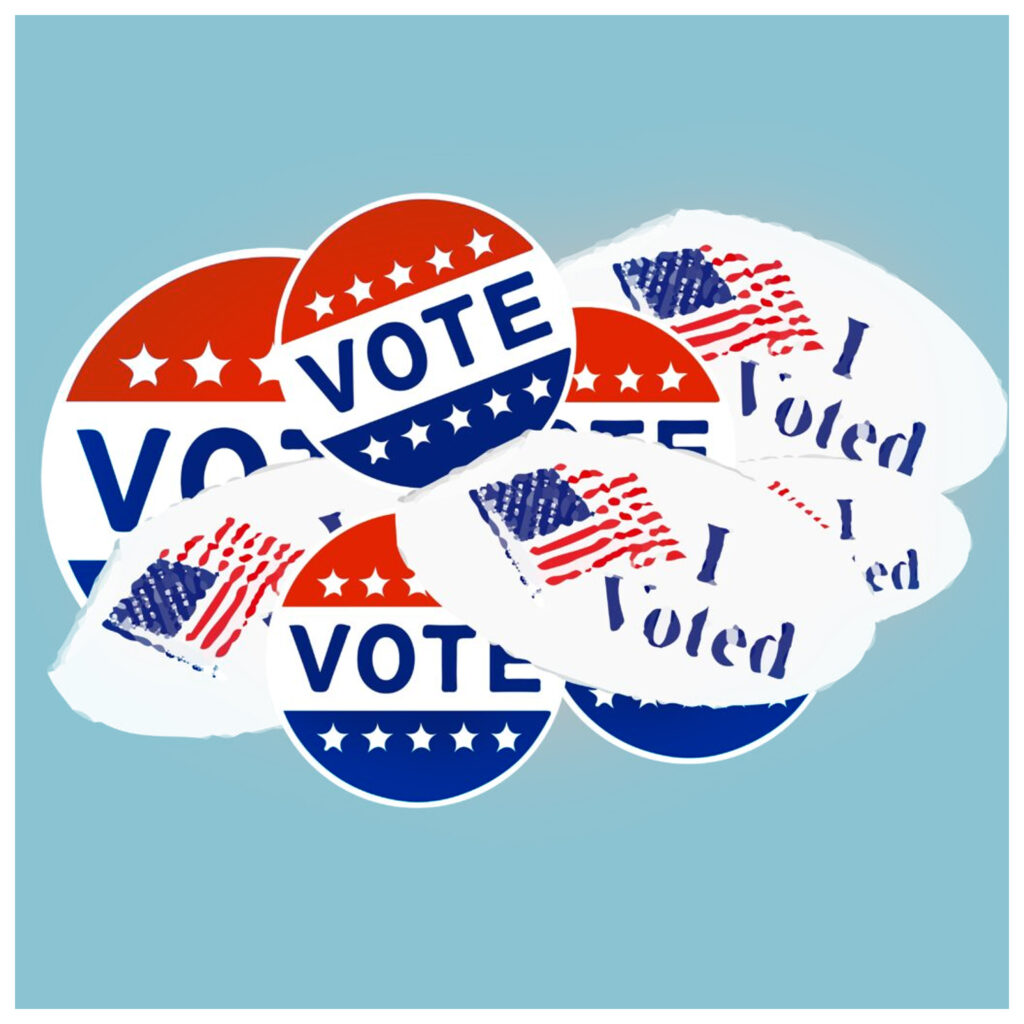Only 12.7% of youth (aged 18-29) currently show up to the polls in Tennessee – the same state that was home to the Civil Rights Movements’ Nashville Student Movement and was the last state legislature to vote for the 19th Amendment, causing it to pass. This makes Tennessee at the very bottom of the list for youth voter turnout, closely followed by Alabama, West Virginia, Indiana, and Oklahoma. Today, Tennessee youth have many concerns that can be solved through policy, such as gun violence, reproductive rights, the ability to read freely and be yourself. But, Tennessee’s young people aren’t showing up to the polls on election day.
It doesn’t add up. Despite a lack of youth voting, we are not apathetic. Polling from Tuft University’s Tisch College shows that 76% of youth nationwide believe they have the power to create change, and 57% say they are very likely to vote in the 2024 Presidential election. Our engagement in social issues is also seen in our social media posts. Given this, why is youth voter turnout in this state so low, and how does it compare to youth voting in other parts of the nation?

One possibility is Tennessee’s strict voter ID law, which only allows a voter to use identification issued by the state or federal government (such as a driver’s license, passport, or gun license), but forbids the use of a school ID or no ID at all. While Tennessee argues that this prevents voter fraud, many other states have much less restrictive voter ID laws (15 states and D.C. don’t require any documentation to vote) and have not seen an increase in voter fraud. Adding school IDs in Tennessee would remove a barrier to lower-income youth voters since many do not get a driver’s license or passport, which cost money, but are provided a school-issued ID for free. Of the 35 states that require voter ID, only 12 of them do not allow any type of school-issued ID, putting Tennessee in the minority.
Another barrier to youth voter engagement is Tennessee’s voter registration deadline, which is 30 days before an election. Given that most first-time voters aren’t thinking about elections until closer to election day, reducing the waiting period would likely increase youth turnout. This was demonstrated by Michigan, which is the state with the highest youth voter turnout at 37%. Significantly, Michigan has same day voter registration, as well as automatic voter registration when getting a driver’s license. These two pieces of legislation passed in 2018 (along with online voter registration) likely helped Michigan become the state with the highest increase in voter turnout from 2018 to 2022. Even if Tennessee isn’t ready to go as far as Michigan, it could reduce the period to 15 days, which is the period used by our sister-state Alabama.
Finally, when there are particular issues that are important to young voters, they will turn out on election day. For example, in 2022, there were many states with issue-based elections including legalization of abortion and marijuana, which also saw a rise in voter turnout. For all youth, those who prioritize climate change are most likely to vote in 2024, closely followed by issues such as abortion access and gun violence prevention. Campaigns should take note of this and make sure that they are engaging with young people on issues that are important to them.
Interestingly, this phenomena is less apparent when it comes to celebrities urging youth to vote. Even though many predict that Taylor Swift endorsing a candidate causes youth to turn out en masse, this may not be the case, as Harvard’s 2023 Fall youth poll found that receiving a personalized reminder to vote from Taylor Swift would cause 19% of respondents to be more likely to vote, 15% less likely, and 64% responded that it would have no effect on their voting behaviors. However, a record number of people registered to vote through Vote.org, following an Instagram post by Taylor Swift with the link.
Given that the youth vote is expected to make up about 20% of the electorate in 2024, we are a fierce voting bloc. Even if you don’t feel like politicians are representative of your age, the more we show up, the more our elected officials will need to listen to us and reflect our values — including passing legislation to reduce the voting barriers that keep many of our friends from the polls. Even though legislators have the biggest responsibility to make it easier for youth to vote, continuing the tradition of democracy, and celebrities can also have an impact through advocacy, students can still make a difference by voting and telling your friends to vote. Too much is at stake to sit at home.
Register to vote here!



